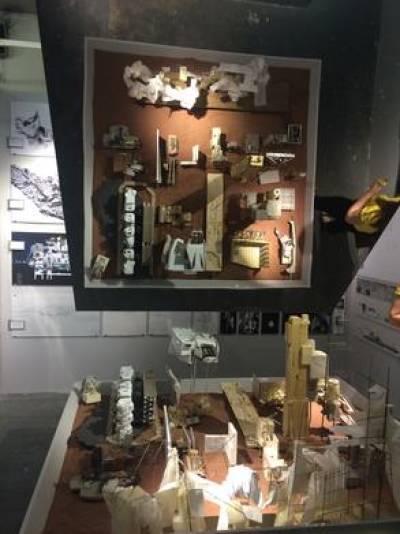
A research project started April 2017, generating "Resources for activating new urban industry through technology, spatial design and transition governance."
Recent blogpost: The role of manufacturing in a thriving city, Josie Warden, RSA.
Main website: http://citiesofmaking.com/
Abstract
The delocalisation of manufacturing activities has pushed manual jobs, technical knowledge and industrial innovation capacity out of European cities. Outsourcing manufacturing out of city centres, and Europe generally, has externalised environmental issues while contributing emissions from transportation. As a response to the economic and environmental challenges, political discourse has called for an 'Industrial Renaissance' (EC 2014) and endorsed re-industrialisation initiatives such as the Circular Economy Package and Industry 4.0. This may offer a raft of potential benefits, including jobs for sociodemographic groups most affected by unemployment, innovation, more efficient use of materials and urban resilience. Urban centres play an important role in nurturing new forms of green urban manufacturing, based on a clean, knowledge- and labour-intensive manufacturing sector.
Re-industrialisation is a complex challenge in terms of adaptation of urban areas and the public services that can support it. This project will close this critical knowledge gap by combining complementary research on a) relevant new smart technologies, b) physical environments for urban making and c) how public services and other relevant stakeholders can engage in transition strategies. This will be achieved through applied research and case studies in Brussels, London and Rotterdam. The outcome will provide practical guidelines and resources for public service professionals, aiming to position public services at the centre of re-industrialisation, grounded in academic research and best practices while equipping them with practical and cost-effective tools that can be deployed to revitalise their industrial bases. Such results will be as relevant to private actors that are taking a collaborative, cross-disciplinary and/or place based approach.
Cities of Making explores opportunities for strengthening urban based manufacturing in European cities following years of decline and offshoring. Using a combination of strategic and action research, our ambition is to identify what works in supporting a resilient and innovative industrial base, and to test those solutions in a real world setting. We will learn from experiences in London, Rotterdam and Brussels - each with a distinct industrial heritage. By the end of the project we will have developed ideas, practices and policies focusing on public authorities (and many other relevant stakeholders) to breathe new life into their manufacturing communities.
Partners and case study cities:
- led by Latitude (Belgium)
- University College London, UCL (London)
- Royal Society for the encouragement of Arts, Manufactures and Commerce RSA (London)
- Universite Libre Bruxelles, ULB (Brussels)
- Vrije Universite Bruxelles, VLB (Brussels)
- Technical University Delft, TU Delft (Rotterdam)
"Cities have become centres of linear consumption"
"Cities… will need to become far more resilient, self-sufficient and
resourceful"
"With the advancement of technologies such as high-precision 3D
printing, CNC milling, decentralised resource processing , the
emergence of the 'maker' culture, new entrepreneurial models and a
focus on the circular economy, such a return is possible. Industry and
making can be more sustainable, social, better distributed, quieter, non-
toxic and adaptable to existing urban conditions."
Cities of Making: Key questions
1. What are the most relevant materials, technologies and processes that will form the basis of the re- industrialisation process in European cities?
2. Where could re-industrialisation occur within existing urban areas and what might the spatial conditions look like?
3. What is the organisational capacity and necessary governance that will help transition European cities to re-industrialisation through public services?
This was awarded in response to the Joiint Programme Initiative (JPI) Call, details below.
In the ERA-NET Cofund Smart Urban Futures (ENSUF) Call, cities and civil society in Europe can address urgent and long-term challenges by co-creating ideas and projects.
http://jpi-urbaneurope.eu/calls/ensuf-call/
Useful Links:
Some information on London's Manufacturing Industry can be found here:
http://www.uncsbrp.org/manufacturing.htm
Growth sectors highlighted in the London Plan, include "green industries" such as some recycling and reprocessing activities.
http://www.uncsbrp.org/growthsectors.htm
Local enterprise partnership for London
 Close
Close


